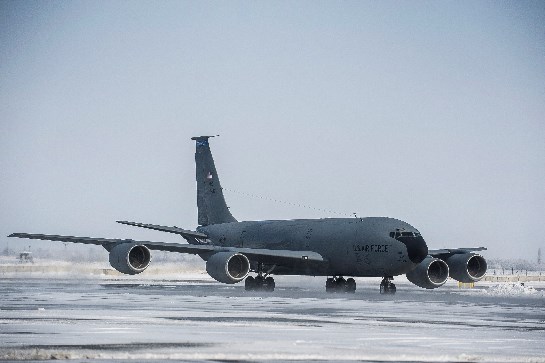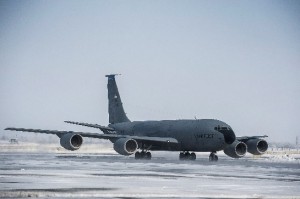
U.S. Bids Farewell to Important Central Asia Air Base
This month marks the official closing of the Transit Center at Manas in north Kyrgyzstan. The Transit Center at Manas was an American air base setup after the September 11th attacks to support the war in Afghanistan.
The Kyrgyzstani government ordered the U.S. to leave the base rather than continuing to collect $60 million a year in rent from the U.S. government. The Transit Center at Manas became an extremely important logistical and operational base for the U.S. after Uzbekistan ordered the U.S. to withdraw from the Karshi-Khanabad Air Base in 2005.
The Transit Center handled over 5.3 million U.S. serviceman since it was established in late 2001, this accounts for 98% of all personnel engaged in the conflict in Afghanistan. Currently, there are only 300 U.S. servicemen remaining at the base. They are all scheduled to leave Kyrgyzstan by July 11th 2014.
Kyrgyzstan, and Central Asia in general, has become strategically closer to Russia in recent years. Russia, in 2005, began pressuring the Kyrgyzstani government to evict the U.S. from Manas because of skepticism regarding American intentions in Afghanistan.
In 2003, Russia established an air force base at Kant Air Base in north Kyrgyzstan as part of the Collective Security Organization Treaty. More recently, Russia announced it would double its military presence at Kant Air Base and extend its lease at the base for another 15 years beginning in 2017.
Russia also maintains its largest air base outside of Russia in west Tajikistan. Russia and Tajikistan have negotiated to enlarge the base and increase the size of Russia’s military personnel. It is clear Russia is strengthening its bulwark in Central Asia in order to help stabilize the region and its border as coalition forces drawdown in Afghanistan.
The closure of U.S. military operations in Kyrgyzstan reflects what many have seen as a diminished role of the U.S. in Central Asia. The U.S. is set to significantly reduce troop levels in Afghanistan over the next two years. By 2016 there will only be a remaining force to guard the embassy in Kabul and provide military guidance to the Afghans.
The U.S. is currently vacating its military operations in Afghanistan and Central Asia in order to concentrate on other regions of the world. Russia is stepping up its strategic influence in Central Asia. It remains to be seen how the U.S. can enhance its strategic objectives and values in Central Asia post 2016, but it is vital for this important region that it does so.







